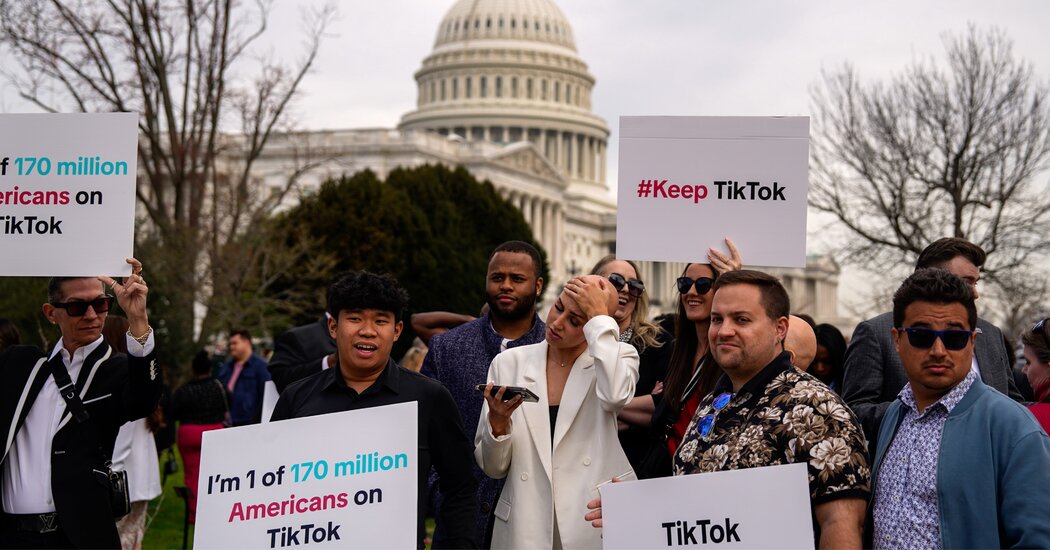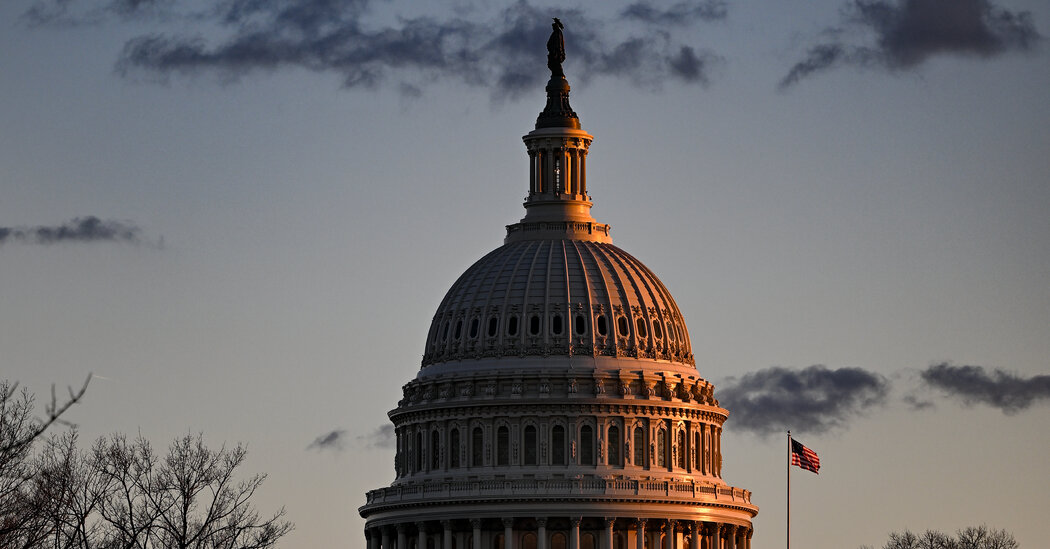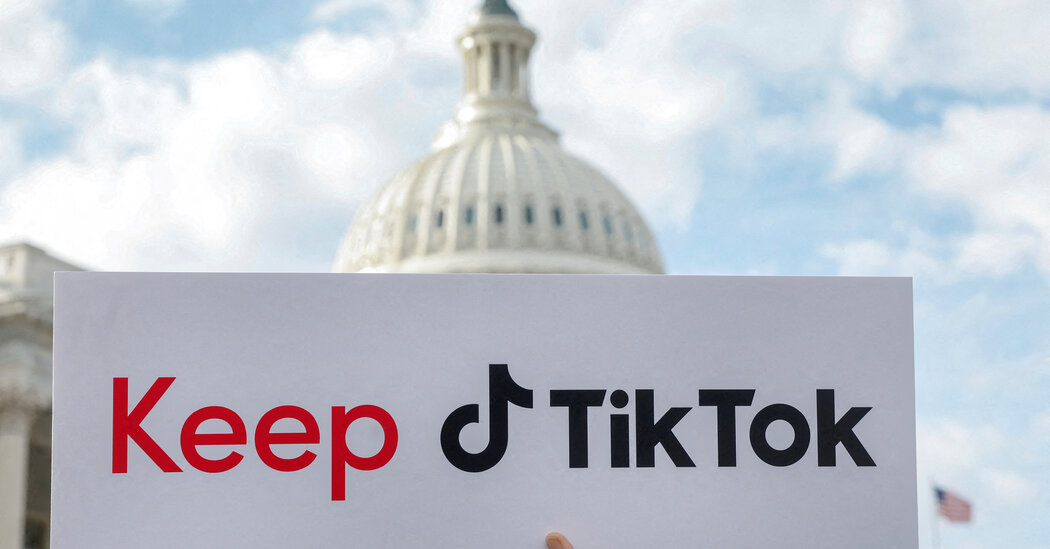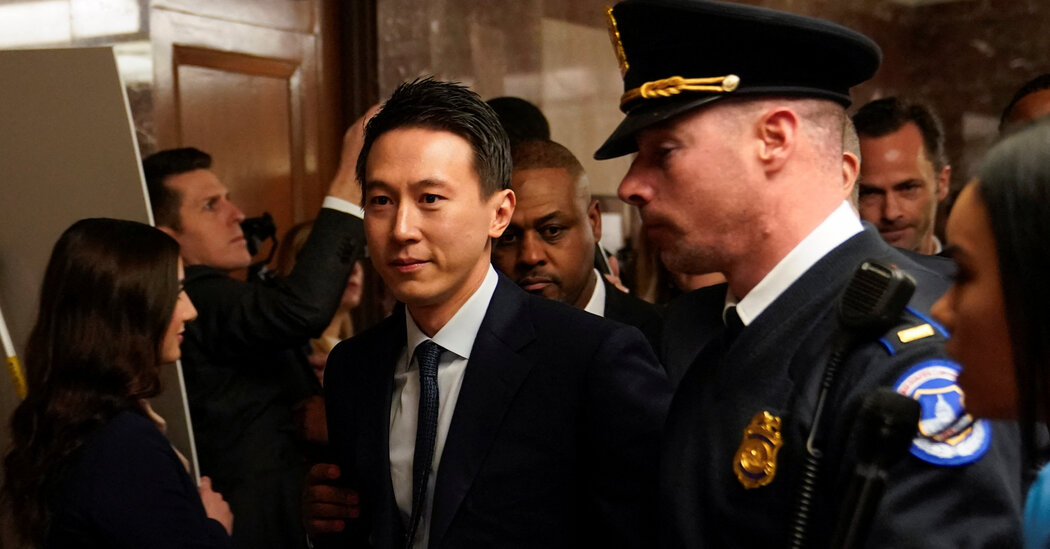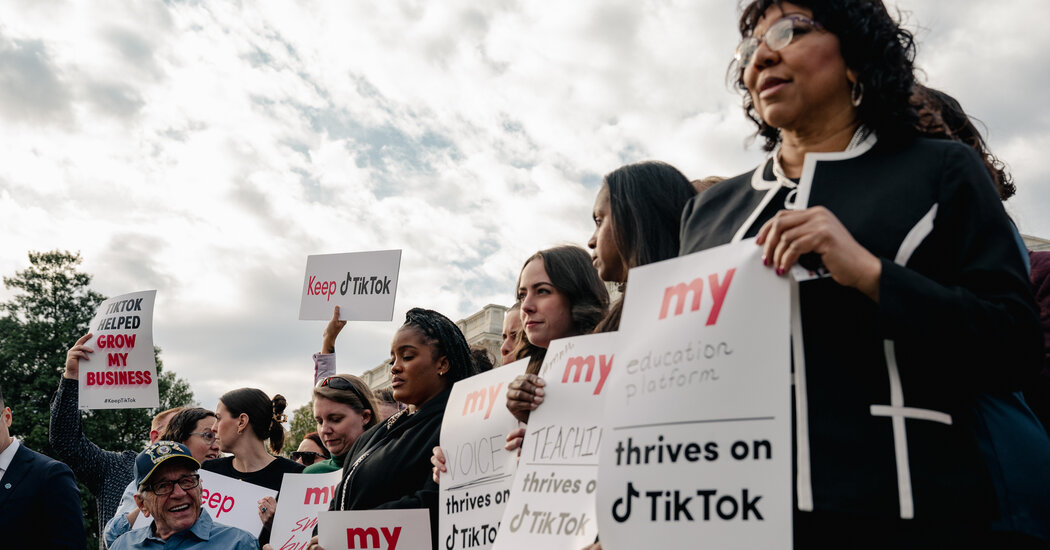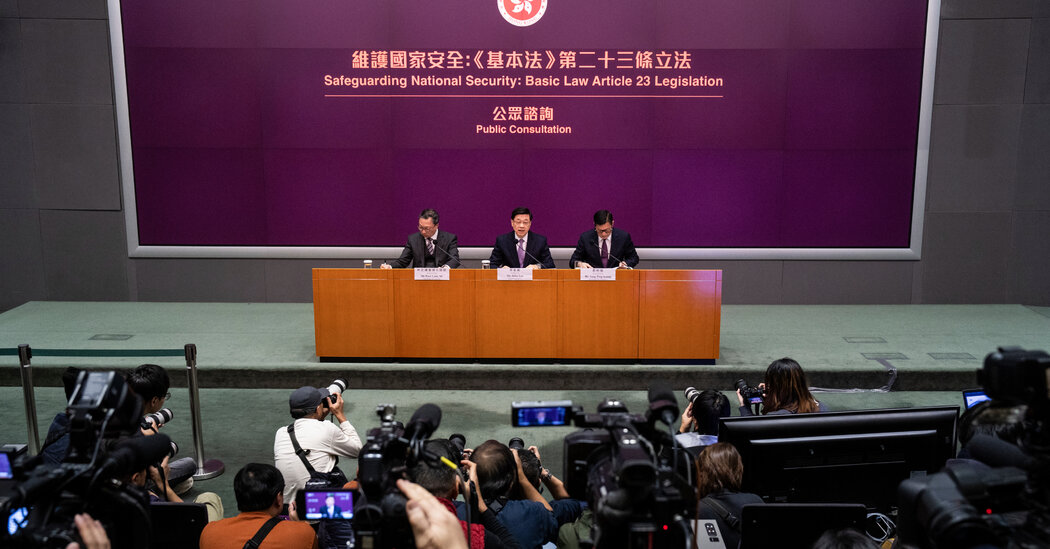In a capital where Republicans and Democrats agree on virtually nothing, it was notable when the House overwhelmingly declared on Wednesday that TikTok poses such a grave risk to national security that it must be forced to sell its U.S. operations to a non-Chinese owner. But that glosses over the deeper TikTok security problem, which the legislation does not fully address. In the four years this battle has gone on, it has become clear that the security threat posed by TikTok has far less to do with who owns it…
Tag: Law and Legislation
U.S. House Passes Bill That Could Ban TikTok
The House on Wednesday passed a bill with broad bipartisan support that would force TikTok’s Chinese owner to either sell the hugely popular video app or have it banned in the United States. The move escalates a showdown between Beijing and Washington over the control of a wide range of technologies that could affect national security, free speech and the social media industry. Republican leaders fast-tracked the bill through the House with limited debate, and it passed on a lopsided vote of 352 to 65, reflecting widespread backing for legislation…
A Ban? A Sale? The Big Questions Hanging Over TikTok
TikTok faces a crucial vote The House is set to vote on Wednesday on a bill that would ostensibly present ByteDance, the Chinese owner of TikTok, with an ultimatum: sell TikTok’s U.S. operations, or have the app barred. But there’s a fight brewing over whether it’s actually possible for ByteDance to sell TikTok — or if the bill is effectively a ban disguised as a call for divestment. The bill itself never uses the word “ban,” but it frames the measure as a necessary effort “to protect the national security…
China Condemns U.S. Proposal to Force the Sale of TikTok
China on Wednesday condemned U.S. lawmakers’ push to force the Chinese parent company of TikTok to sell the popular short video platform. In Washington, House lawmakers were expected to vote on a bill later in the day that would require the Chinese internet company ByteDance to cut ties with TikTok or face a nationwide ban. Lawmakers say that Beijing could use TikTok to spread Chinese Communist Party messages or gain access to sensitive data about TikTok’s American users. Beijing rejected concerns that the app was a danger to the United…
What to Know About the TikTok Ban Legislation
House lawmakers are expected to vote starting at around 10 a.m. on Wednesday on legislation meant to force ByteDance, the Chinese internet company, to sell its wildly popular social media app TikTok. The vote would be the latest development in a yearslong cold war between the United States and China over who controls valuable technology from computer chips to artificial intelligence. Lawmakers and the White House have expressed concerns that TikTok’s Chinese ownership poses a national security risk because Beijing could use the app to gain access to Americans’ data…
Hong Kong Pushes Strict New Security Law With Unusual Speed
Under pressure from Beijing, officials in Hong Kong are scrambling to pass a long-shelved national security law that could impose life imprisonment for treason, insurrection and colluding with external forces, stiff penalties aimed at further curbing dissent in the Asian financial center. The law known as Article 23 has long been a source of public discontent in Hong Kong, a former British colony that had been promised certain freedoms when it was returned to Chinese rule in 1997. Now, it is expected to be enacted with unusual speed in the…
TikTok Prompts Users to Call Congress to Fight Possible Ban
Washington lawmakers introduced a bill this week calling for TikTok to cut ties with its Chinese parent company or face a ban in the United States. When many users opened the popular app on Thursday, the company greeted them with a message to oppose the legislation, prompting a flood of phone calls to several Capitol Hill offices. “Stop a TikTok shutdown,” the message on the app read. It included a button for people to call their representatives, saying: “Let Congress know what TikTok means to you and tell them to…
China Expands Scope of ‘State Secrets’ Law in Security Push
China passed revisions to an already stringent state secrets law, broadening the scope of the type of information that would be considered a national security risk in the world’s second-largest economy. The changes elevate the risks for foreign businesses operating in the country. Over the last year, China has targeted consultants and business executives in espionage cases as part of a push to limit the spread of information sought by investors and foreign companies. The amendments to the state secrets law, which were passed by China’s top legislative body on…
Hong Kong Pushes New Security Law to Root Out ‘Seeds of Unrest’
The Hong Kong government will enact a long-shelved security law to curb foreign influence and expand the definition of offenses like stealing state secrets and treason, officials announced on Tuesday, in a move expected to further silence dissent in the once-freewheeling Chinese territory. The proposed law would lay out five major areas of offenses: treason, insurrection, theft of state secrets, sabotage and external interference. Some of the definitions would echo mainland Chinese treatments of those offenses. “Foreign intelligence organizations, the C.I.A. and British intelligence agencies have publicly stated that they…
Taiwan’s Democracy Draws Envy and Tears for Visiting Chinese
At the Taipei train station, a Chinese human rights activist named Cuicui watched with envy as six young Taiwanese politicians campaigned for the city’s legislative seats. A decade ago, they had been involved in parallel democratic protest movements — she in China, and the politicians on the opposite side of the Taiwan Strait. “We came of age as activists around the same time. Now they’re running as legislators while my peers and I are in exile,” said Cuicui, who fled China for Southeast Asia last year over security concerns. Cuicui…
